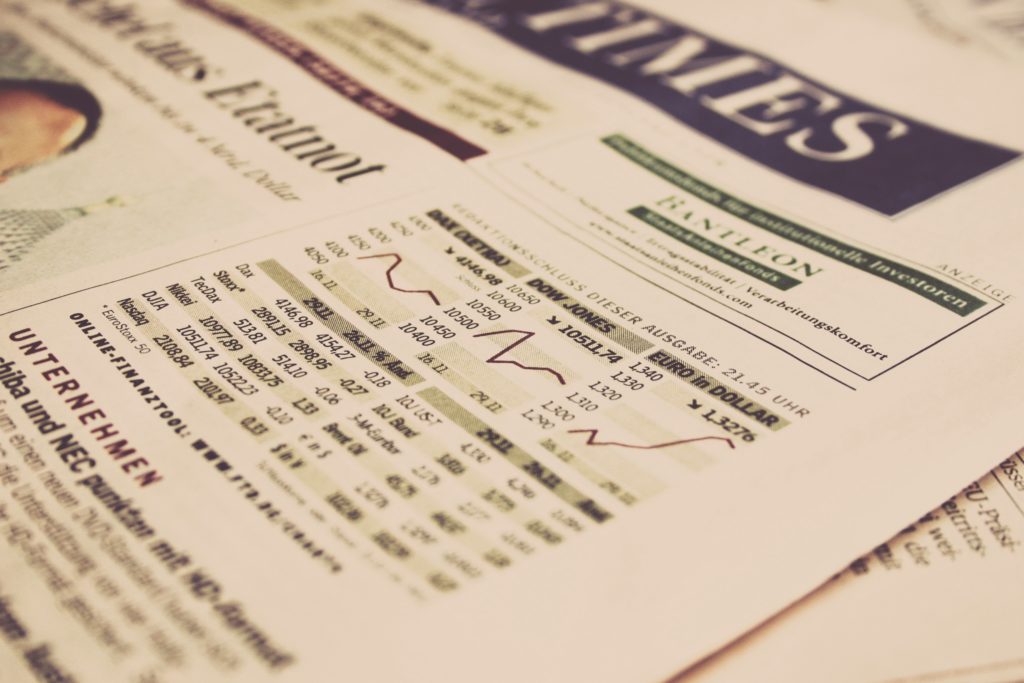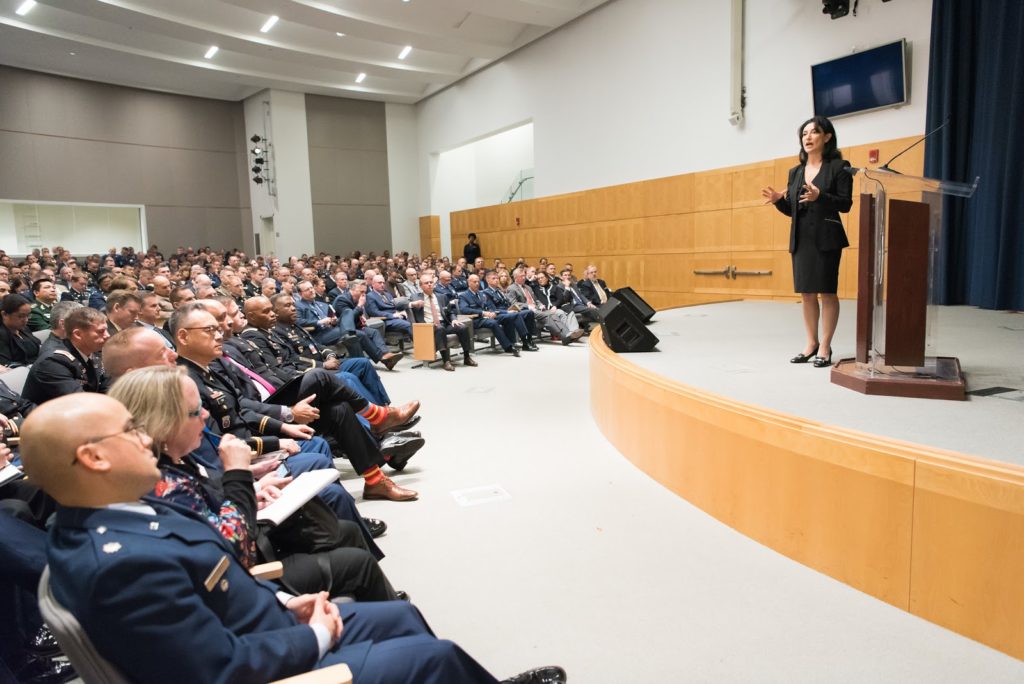How much is a leader expected to know about the future when the future is complex and uncertain?
Leaders with vision are expected to anticipate the future
Leadership and anticipation are intrinsically intertwined concepts. As consumers and members of the general public, we expect our corporate leaders to know about preventable accidents, as Boeing CEO Dennis Muilenburg may have recently discovered when he apologized for the role of Boeing flight control systems in the deaths of 346 people.
As citizens, we hope that national leaders will be on alert for attacks and crises, whether opioid addiction, floods, or more slowly moving crises such as deep poverty.
As shareholders, we expect business leaders to know how to ensure our return on investment. Leaders are supposed to be responsive to the changing times and have the imperative to transform organizations accordingly, as General Electric’s CEO Larry Culp knows well.
But even in the absence of an impending crisis or a potentially missed windfall, leaders are expected to continuously make claims and bets regarding the future.
It is growing more difficult to anticipate the future
There is little dispute that the world is growing more complex and its systems more interconnected. As a result, the world is also growing more uncertain. Business conditions that were once stable are now difficult to predict, and this raises meaningful questions about how responsible business leaders should be for anticipating and preparing for future events.
Are leaders responsible for preventing harm in uncertain events?
Hurricanes and tropical storms were once difficult to predict. Now we can forecast them with great nuance. Yet, despite the development of more precise data collection and powerful storm simulators, hurricanes are not entirely predictable.
A storm can betray its expected trajectory (affecting its landfall position) or its expected strength (as it interacts with existing landmarks and weather patterns). So, while community leaders and emergency workers can typically anticipate a hurricane’s arrival, they cannot be sure of its strength or exact geographical positioning.
This happened in Hurricane Michael, which was the third most intense Atlantic hurricane ever to hit the continental United States when it made landfall in October 2018. “Entire neighborhoods were completely wiped out; houses picked up by the wind and dropped hundreds of feet away…,” said one aid worker. (In April 2019, the hurricane was even upgraded retrospectively to a category 5 storm.)
Leaders’ access to partial knowledge raises an important question: should it be possible to hold anyone responsible for planning for potential uncertainties? What about increasing certainty? Computing power and speed, artificial intelligence and machine learning, and sensors incrementally increase the degree of certainty around specific events, like the weather, which means that it will be plausible to expect more advance planning.
Are leaders required to anticipate second and third order effects of potential events?
What are the ethics surrounding indirect, second or third-order consequences of a disaster such as a hurricane that goes off course?
Southeastern Alabama is among several locales that suffered mightily, but indirectly, from Hurricane Michael’s effects. After the hurricane made landfall, it moved inland as a storm. The direct agricultural losses of the storm were around $200 million.
But residents are experiencing ongoing ripple effects. Farmers are not buying equipment or supplies this year. Their families are not shopping much either, putting thousands of retail jobs at risk.
Some might call Hurricane Michael bad luck. But in an era of vastly improving data analytics, does it have to be?
The amount of data-driven anticipatory knowledge available is multiplying exponentially. With knowledge, however, may also come responsibility.
How will governments, business and citizens manage the politics of information?
Information is power, it is said, and the powerful have always sought to control information and its flows. This challenging situation is amplified when risks arise out of complex systems.
Consider the global financial system and the 2008 crisis.

To develop a complete picture and identify potential inflection points for collapse, it is necessary to see the financial system holistically. The global financial system is not really one system but a web of interacting sub-systems–from banks to intermediaries to consumers.
In reality, it is impossible to see the financial system in its entirety. Nevertheless, as Michael Lewis made vividly clear in The Big Short, some people foresaw the real estate market collapse, which snowballed throughout the economy. But some of these people sought to prevent the crisis, while others sought to profit.
How should we–citizens of societies–seek to manage information, align incentives to reduce harm, and create transparency when risks are existential or systemic, such as in the global economy.
While this problem lacks a neat solution, it reveals questions that are important to ask as information and knowledge are powerful tools to help leaders anticipate risks to their constituencies.
Anticipatory leadership is key to leadership vision: five recommendations
While we cannot demand that leaders know more than can be known about the future, we can promote anticipation as intrinsic to leadership. Anticipatory leaders think and make decisions with an emphasis on the future in mind.
Here are five criteria for leaders to strengthen their foresight skills:
1. Develop the mindset of the anticipatory leader.
Learn to interrogate your own assumptions about what is happening in the world. Learn to ask, “Why do I believe that this phenomenon is important? And not that? What is the argument for the opposite? In what world might my assumptions be untrue?”
Add lateral thinking. Ask, “What don’t I know?”
Once you get comfortable with the boundaries of your own mind, you have begun to build a bridge to new knowledge, which is the first step toward being a highly sensitive receiver of signals.
Uncertain situations may seem amorphous. If you conclude too early that you know what you are looking at, you are liable to miss other signals of what may happen. So it is important to grow comfortable with intermittent uncertainty.
2. Learn complexity thinking.
All leaders should learn the basic terminology and concepts of complexity science because it is vital for understanding uncertainty and emergence. The Santa Fe Institute offers many free resources for self-education.
Complexity science can help us develop mental models of what emergence looks like and a probabilistic picture of future events.
3. Basic cyber knowledge.
Because digital computation is fundamental to the large-scale transformations occurring in our world and a driving reason for the complexity in our systems, all leaders should understand how information moves within and between computers.
What is a packet? How does information move inside the internet? What do people mean by the term artificial intelligence? What is machine learning? What is an algorithm?
You do not have to code, you don’t have to be a computer scientist, but you should learn the basics.
You will have to make decisions that touch on technology and you cannot make them well if you do not have a basic understanding of what happens after you press send on an email.
4. Develop the skills of Strategic Foresight.
Strategic Foresight (also called futures studies and futures work) is a multidisciplinary domain that helps people think and plan systematically and rigorously for the future. Understanding the basics of Strategic Foresight helps leaders understand how to explore trends and factors that may alter future events.
Strategic Foresight is empowering because it helps people understand how change happens and how to influence change itself. Once the foresight work is underway, it becomes possible to see risks and opportunities that may not have been previously visible.
5. Use collective intelligence to understand potential future events.
Many definitions of leadership include the idea that it is a co-creation of stakeholders and leaders.
This is a useful concept for gathering signals of potential change in your environment because no single person or industry can know the whole of what is happening in a very dynamic world.
But collective intelligence is invaluable. The understanding that everyone in an organization is a sensor in a different part of the world and viewing it through a different lens, is invaluable. A leader who develops internal systems that gather knowledge from the edges will be better at sensing what could happen. The leader who willfully quiets various channels of communication that could be of help can be held responsible for the intentional negligence.
Uncertainty is an opportunity for leadership and anticipation
Uncertainty should not be a cause for fear. Without it, all would be known, and there would be no opportunity to grow, compete or succeed. Helga Nowotny, the former head of the European Research Council, reminds us of this in her 2015 book, The Cunning of Uncertainty.
“Uncertainty is the dynamic balance between what we know and do not yet know about the world and about ourselves. Recognizing its cunning and entering into collusion with it enables us to exploit the dynamic balance in favor of moving on. It opens the cracks in the wall to let the new in. Unwrapping the gifts that we receive from randomness, thriving on the cusp of uncertainty and knowing when is the right moment to act, delay or forego action are different ways of embracing uncertainty.”
__________________________________________
This article is adapted from “Knowledge and Ignorance in the Black Swan Age,” a lecture given by Amy Zalman to the students of the National Defense University as part of the school’s President’s Lecture Series in November 2018, at Fort McNair in Washington, DC.


